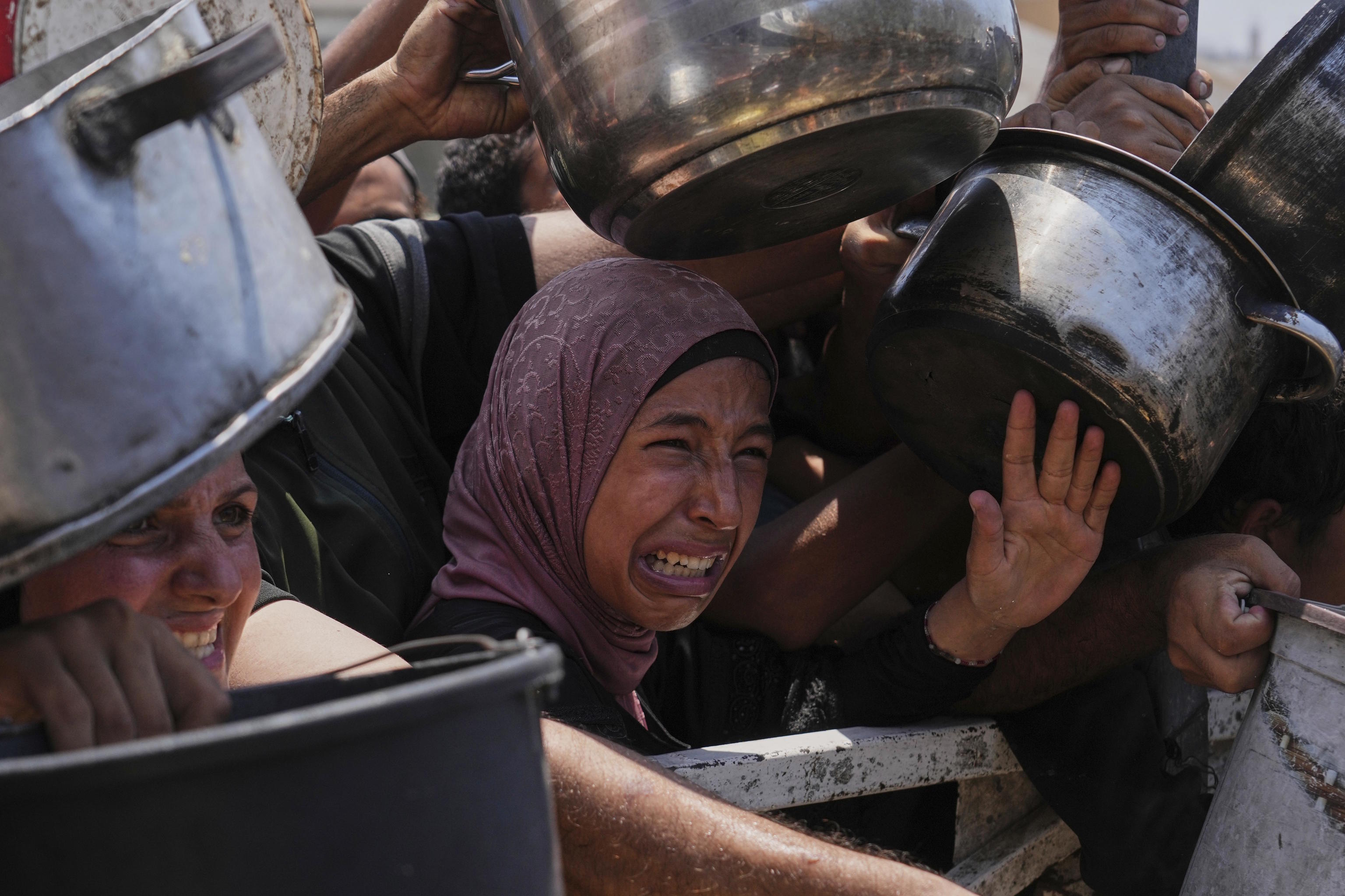The UN warned on Tuesday that "the worst famine scenario is already underway in Gaza", with 39% of the population going days without eating and over 20,000 children being treated for malnutrition in hospitals in the last three months. "We have never seen anything comparable in this century," said Ross Smith, director of emergencies at the World Food Programme (WFP). "It reminds me of the famines in Ethiopia and Biafra."
The IPC report (Integrated Food Security Phase Classification) certified that the number of families affected by hunger has doubled between May and July, and that the malnutrition rate in the City of Gaza has quadrupled, from 4.4% to 16.5% of the population in the same period.
The report warns that only "immediate and unimpeded" access to humanitarian aid by land can prevent a rapid increase in deaths from hunger, and that the recently authorized aerial delivery of supplies by Israel "will not be enough to reverse the humanitarian catastrophe."
"We need urgent action now," was the appeal made to the international community from Rome by WFP expert Ross Smith, when comparing the situation in Gaza with the major famines of the late 20th century. In Ethiopia, drought and war between 1983 and 1985 led to food shortages affecting 7.7 million people and claiming over 300,000 lives (plus 400,000 refugees).
In Biafra, the famine was caused by the blockade imposed by the federal Government of Nigeria on the secessionist state between 1967 and 1970 during the civil war that ravaged the country. The blockade caused a humanitarian crisis that triggered a global mobilization and opened a debate on the use of the concept of "genocide" due to the use of hunger as a weapon of war, within the context of the Geneva Conventions. It is estimated that one million people may have died over the three years of the conflict that ended with Biafra's surrender.
The IPC report does not draw a direct comparison between the situation in Gaza and past famines, but it warns that "only immediate action, an end to hostilities, and large-scale humanitarian aid" can prevent an increase in hunger-related deaths and "catastrophic human suffering." The UN states that the availability of food and basic goods has plummeted "to unprecedented levels" in the last three months.
In the previous report from May, the IPC warned about how the Gaza Strip and specifically the City of Gaza were on the brink of famine, given the "growing evidence of increased levels of malnutrition and diseases." Experts cautioned that the majority of the 2.1 million Palestinian population faced "extreme levels of food insecurity" and were "at critical risk of hunger."
To qualify as a famine, at least 20% of the population must experience "extreme food shortages," one in three children must show signs of malnutrition, and two out of every 10,000 people may die from hunger-related causes.
The lack of data due to the near-total destruction of the healthcare system in Gaza during the conflict complicates the situation, although the World Food Program and UNICEF warned in a joint statement that "deaths from starvation are becoming increasingly common" in the strip.
(The number of fatalities in the 22 months of conflict has now risen to 60,034, with 145,870 injured, according to data provided on Tuesday by the Ministry of Health controlled by Hamas and deemed "reliable" by the UN).
"We need to get food to Gaza immediately, every day, massively and without obstruction," warned Cindy McCain, WFP director. "The longer we delay action, the higher the number of deaths from hunger will be."
"Children and babies are dying every day in Gaza from malnutrition," stated Catherine Russell, UNICEF director. "Without immediate assistance of food, water, and medicine, mothers and fathers will continue to live this nightmare and will be unable to prevent their children from dying of hunger."
"The data is there and undeniable," declared UN Secretary-General António Guterres on Tuesday. "The latest IPC report confirms what we feared. Palestinians in Gaza are experiencing a humanitarian catastrophe of epic proportions. This is not a warning, it is a reality unfolding before our eyes."
The coordinator of Doctors Without Borders (MSF), Jean Guay Vataux, joined the UN's call on Tuesday, stating that the aerial delivery of supplies (as also announced on Tuesday by France) is a "notoriously inefficient and dangerous" solution, reiterating the request to Israeli authorities to facilitate massive access of humanitarian convoys by land: "The roads are there, the trucks are there, the food and medicine are there... Everything is ready just a few kilometers from Gaza."
Thirty academics, intellectuals, politicians, artists, and prominent figures in Israeli society signed an open letter on Tuesday, published, among other media, by The Guardian, urging the international community to impose "harsh sanctions" on the Government of Benjamin Netanyahu for "causing death by hunger and forcing the displacement of millions of Palestinians from the Gaza Strip." Signatories include Nobel laureate Yuval Abraham, former prosecutor Michael Ben-Yair, and former Parliament spokesperson Avraham Burg.
